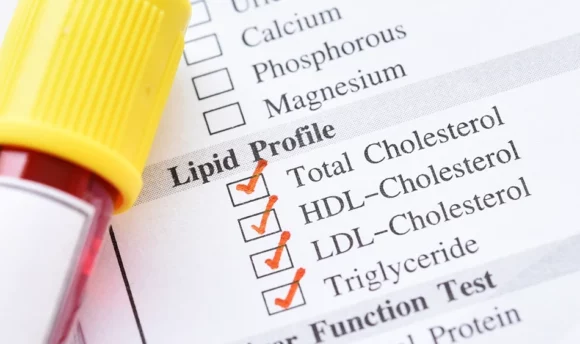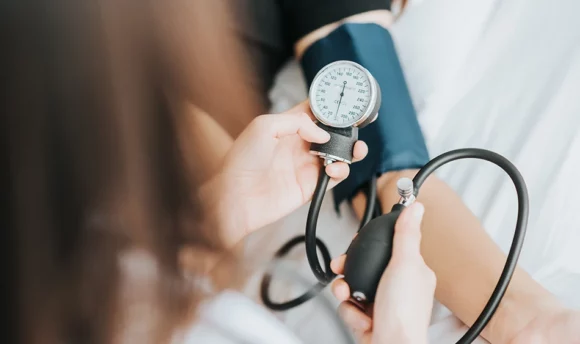Does Aspirin Lower Blood Pressure, and What Are the Risks?
Aspirin is a non-steroidal anti-inflammatory that is used to treat headaches, cold and flu symptoms, and other inflammatory conditions, but can it be used to lower blood pressure? We take a look at the drug’s ability to reduce blood pressure here.

If you’ve got high blood pressure, you may have heard that aspirin can help you lower it. However, the research regarding the efficiency of aspirin in lowering blood pressure is conflicting, with some studies showing it to work and others suggesting it increases the risk of hypertension.
Aspirin is frequently used to thin the blood and reduce the risk of blood clots, but can it be an effective tool for lowering blood pressure, or should it be avoided by those with hypertension?
We’ve taken a look into aspirin as a method of lowering high blood pressure. To learn more about this drug and how it may help in lowering blood pressure, keep reading now.
Does Aspirin Lower Blood Pressure?
Aspirin therapy is commonly cited as a method of reducing blood pressure; however, the drug itself does not necessarily lower blood pressure. Instead, aspirin may thin the blood, reducing platelet activity, which can help those with high blood pressure.
Aspirin is classified as an antiplatelet blood-thinning drug as it prevents blood cells from clumping together and forming a clot.
Though this action is targeted at thinning the blood and not reducing blood pressure, blood-thinning drugs are oftentimes taken alongside drugs to reduce blood pressure as the two work together to reduce the risk of heart attack and other coronary events.
What Is Aspirin?
Aspirin is a non-steroidal anti-inflammatory drug (NSAID). Non-steroidal anti-inflammatory drugs are a group of drugs used to reduce pain, fever, and inflammation.
Common uses of aspirin include treating:
- Headaches
- Cold and flu symptoms
- Menstrual cramps
- Sprains and strains
- Conditions like arthritis and migraines
They are not steroids, even though they have lots of the same benefits, and therefore can be used by those who cannot use this kind of drug. They are also classified as non-narcotic, meaning they do not cause insensibility or a stupor.
Does aspirin work better at night to lower blood pressure?
Some research suggests that taking aspirin before bed is the best time to take it to lower your blood pressure. The studies were concerned with those with undiagnosed hypertension and high-risk pregnant women and found blood pressure was more controlled when aspirin was taken in the evening rather than upon waking.
However, more recent research has found that any effect on blood pressure that aspirin may have is not affected by the time at which it is taken.
For best practice, follow guidance from your doctor on when to take aspirin if you are taking it for high blood pressure.
Should You Take Aspirin for Hypertension?
Some studies show that hypertensive patients may benefit from using aspirin, especially at bedtime, as it is shown to reduce systolic blood pressure. However, other studies seem to suggest that using aspirin will not aid those with hypertension and may actually inhibit the action of antihypertensive drugs.
With studies showing conflicting results as to the positive benefits of aspirin for those experiencing hypertension, the best course of action would be to consult a medical professional before using it, especially if you are already taking antihypertensive drugs.
When to Take Aspirin in Hypertension?
There is some evidence to suggest that those with pre-hypertension or undiagnosed hypertension may benefit from low-dose aspirin taken at bedtime. However, for those with diagnosed hypertension, aspirin may actually increase blood pressure.
Though it may not have many benefits for hypertension, low-dose aspirin is often prescribed to reduce the risk of heart attack and other kinds of cardiovascular disease, like coronary artery disease.
Aspirin may also have some benefits for pregnant women who are at high risk of developing pre-eclampsia.
Risks of Taking Aspirin to Lower Blood Pressure
Generally, aspirin therapy is prescribed as a method of lowering the risk of cardiovascular conditions. For those at high risk of these events, the benefits of taking aspirin outweigh the risks.
The risks of using aspirin include:
- Irritates the stomach lining and gastrointestinal tract, leading to stomach and digestive issues
- Could trigger stomach ulcer and bleeding
- May cause you to bleed more than usual
- Heavier periods
Due to these risks, there are a few groups of people who should not take aspirin unless told to by a doctor. These include:
- If you have had an allergic reaction to aspirin or other NSAIDs in the past
- If you’ve ever had a stomach ulcer
- If you’ve recently had a stroke (some people who have had a stroke may actually be prescribed aspirin, though this will be assessed by a doctor)
- If you have hypertension
- If you suffer from indigestion
- If you have asthma or lung disease
- If you have a blood-clotting problem
- If you suffer from liver or kidney problems
- If you have gout
- If you already have heavier periods
- If you are pregnant, trying to get pregnant, or are breastfeeding (you may be prescribed aspirin by your doctor if you are at risk of pre-eclampsia)
Like any drug, aspirin may cause an allergic reaction. Symptoms of allergic reaction range from a rash, swollen lips, and itchy eyes to loss of consciousness and difficulty breathing. If you experience any of these symptoms after using aspirin, seek immediate medical attention.
How to Manage Your Blood Pressure
There are several ways you can begin lowering blood pressure and managing your condition if you have high blood pressure. Methods include losing weight, exercising more regularly, and reducing your sodium intake.
Losing weight can help you lower your blood pressure. You’re at greater risk of high blood pressure if you have a waistline over 40 inches for men and 35 inches for women. You could try changing your diet and eating at a calorie deficit to reduce weight.
More regular exercise can help you reduce your weight and prevent those with higher blood pressure from developing hypertension.
Sodium increases your blood pressure, so reducing sodium in your diet may help you manage your blood pressure more effectively.
Managing your blood pressure will require various lifestyle changes. If you have tried a few different methods and aren’t seeing any changes, speak with your doctor to find out what more you could try.
FAQs
There is some evidence to suggest that aspirin may raise blood pressure in those with high blood pressure. It has also been found to interfere with antihypertensive medication and so may not be suitable for those with high blood pressure.
As with many NSAIDs, aspirin takes around 20–30 minutes to begin working. If you are taking daily aspirin for cardiovascular risks, it should begin working immediately. Indeed, when taken during a heart attack, it is thought to work in less than ten minutes.
Low-dose aspirin is thought to reduce the risk of cardiovascular events, but the evidence that it reduces high blood pressure is mixed, so it could be dangerous for those with hypertension. Seek professional medical advice if you intend to take aspirin and have high blood pressure for the best advice.
While using aspirin every once in a while is safe for most adults to relieve pain, fever, and inflammation, you should speak with a doctor before taking daily aspirin. Daily aspirin may increase your risk of gastrointestinal issues and could cause you to bleed more than usual.
Sometimes, aspirin is prescribed alongside blood pressure medication to help increase blood flow and reduce the risk of blood clots. Aspirin does not affect blood pressure itself but can decrease the risk of blood clots. Daily aspirin therapy may be prescribed for those at risk of coronary events, and high blood pressure is a risk factor for these events.
A Word From Our MD
Though it is a commonly cited method of reducing blood pressure, aspirin may actually have adverse effects on those who have high systolic and diastolic blood pressure. If you are already taking antihypertensive medication or have been diagnosed with hypertension, speak with a doctor before using aspirin.
Aspirin is from a family of drugs known as NSAIDs and is used to reduce inflammation in the body, reduce pain, and calm fever. It is used for headaches, cold and flu symptoms, and menstrual cramps.
Aspirin is also used to reduce the risk of a heart attack and other conditions that affect the heart and blood vessels, like heart disease. This is because of aspirin’s ability to reduce the risk of blood clots in the blood vessels.
During major cardiovascular events, aspirin is used to reduce blood clots and replenish blood flow to the heart. A myocardial infarction (the medical term for heart attack) is caused by a blood clot in the heart, and so aspirin can help treat this.
If you are at high risk of cardiovascular conditions, like heart disease, stroke, and heart attacks, you may be prescribed a daily dose of aspirin. You may be prescribed this alongside blood pressure medication too.
It is always best to speak with a doctor before taking aspirin as it may interfere with your medication and actually raise your blood pressure.
Conclusion
The answer to the question of whether aspirin lowers blood pressure is a tricky one. Aspirin may be used alongside medications to reduce blood pressure, but aspirin itself does not reduce the pressure.
Aspirin is an antiplatelet drug, meaning it reduces blood clots, which could be beneficial to those with hypertension. However, aspirin could have adverse effects on those with hypertension and should not be taken unless advised to do so by a medical professional.

















































 Select your language:
Select your language: 








